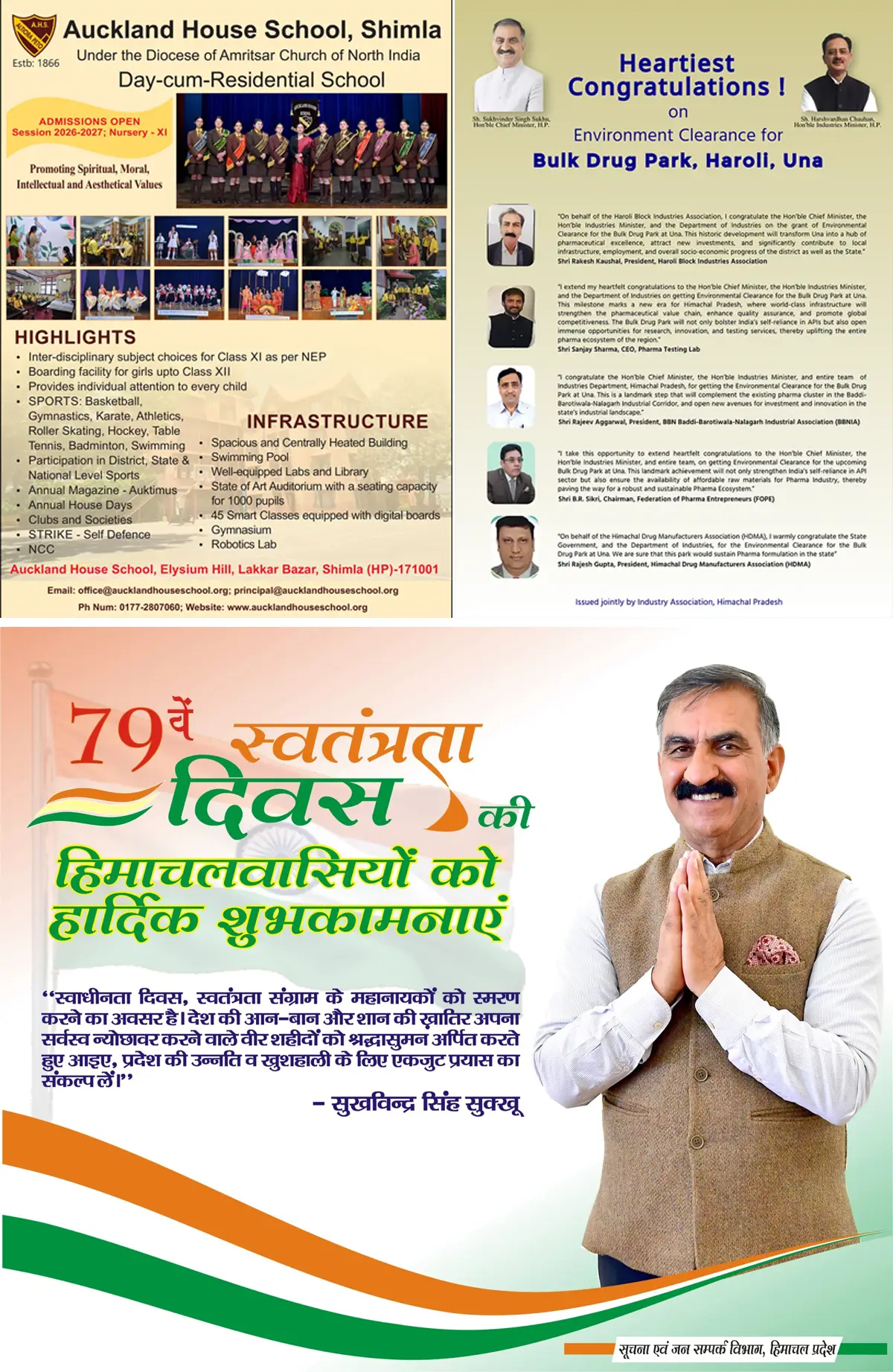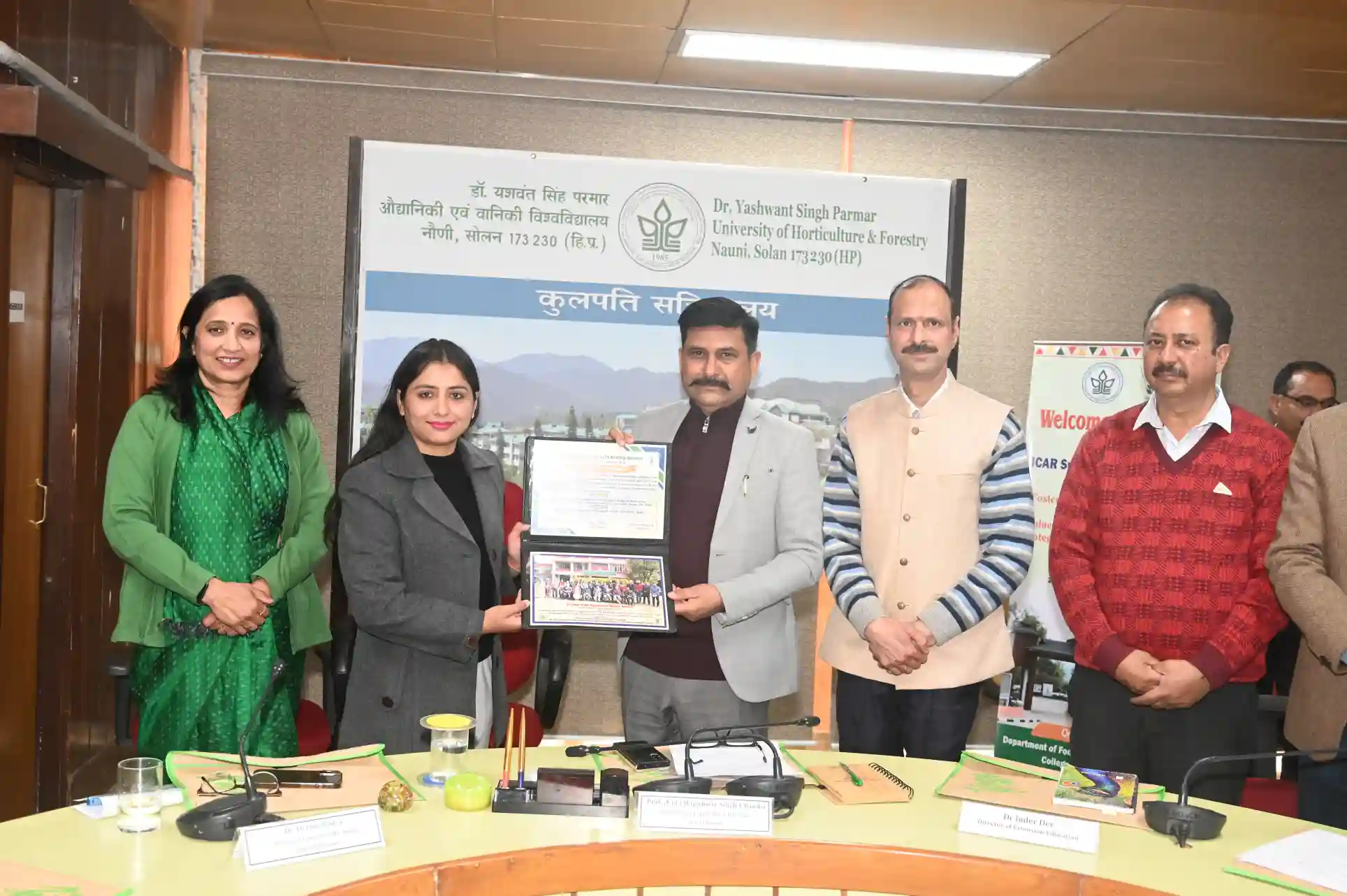Nauni University’s Soil and Leaf Analysis Lab gets NABL Accreditation
2 min read
Solan Jan 16
The Advanced Soil and Leaf Analysis Laboratory of the Department of Soil Science and Water Management at Dr. YS Parmar University of Horticulture and Forestry, Nauni, has been awarded National Accreditation Board for Testing and Calibration Laboratories (NABL) accreditation. This prestigious recognition was awarded in accordance with the ISO/IEC 17025:2017 standard, confirming the lab’s compliance with general requirements for the competence of testing and calibration laboratories.
Established as part of the World Bank-funded HP-HDP project, the laboratory specializes in comprehensive soil and leaf analysis, including testing for micronutrients and macronutrients. It also conducts manure and compost analysis in accordance with Fertilizer Control Order (FCO) specifications. Serving as both a resource generation and facility-sharing platform, the lab has already attracted numerous clients from within and beyond the state.
Dr. Uday Sharma, Professor and Head of the Department of Soil Science and Water Management, as well as the laboratory’s Quality Manager, highlighted the rigorous process involved in achieving the certification. The lab underwent a thorough evaluation by the Quality Council of India, which involved testing its reliability through the analysis of unknown samples before granting accreditation for its comprehensive soil testing across 11 parameters.
Vice Chancellor Prof. Rajeshwar Singh Chandel congratulated the Department of Soil Science team for this significant achievement, noting that the accreditation would enhance the credibility of the laboratory and further solidify the trust of farmers and institutions in its analysis. Dr. Sanjeev Chauhan, Director of Research, also commended the team’s efforts and stressed the importance of maintaining the high-quality standards set by the lab moving forward. Since becoming fully operational in 2021, the lab has analyzed over 6,000 samples, contributing significantly to both the university’s revenue and its reputation as a leader in soil science research






